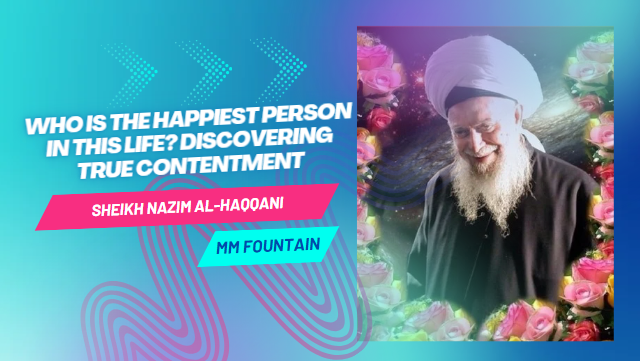
Bismillahi r-Rahmani r-Rahim
Introduction: Understanding Contentment through Islamic Teachings
In the pursuit of happiness, many seek external pleasures and achievements, yet true contentment transcends these fleeting desires. According to the profound teachings of Moulana Sheikh Nazim QS, the happiest person in life is one who is satisfied with the station in life that Allah has placed him. This state of contentment is not just about passive acceptance but an active realization that everything is perfectly suited for us by divine wisdom. This article explores the depth of this concept, drawing from Islamic teachings and philosophical insights, to guide us toward true fulfillment and satisfaction in life.
The Essence of Contentment: A Divine Perspective
Understanding Contentment in Islamic Philosophy
Islamic philosophy underscores the idea that true contentment is rooted in faith and trust in Allah’s plan. The Quran and Hadiths highlight that every circumstance, whether joyful or challenging, is a manifestation of Allah’s wisdom. When we are content with our situation, we acknowledge that it is the best possible scenario designed for our ultimate good. This belief in divine wisdom helps us to navigate life’s ups and downs with a serene heart and a steadfast spirit.
The Quranic Basis for Contentment
The Role of Faith in Achieving True Happiness
Faith as the Foundation of Contentment
Trusting in Allah’s Wisdom
Practical Steps to Cultivate Contentment
Practicing Gratitude
Seeking Knowledge and Wisdom
The pursuit of knowledge is another avenue to enhance our contentment. Islamic teachings emphasize the importance of seeking knowledge to understand Allah’s creation and our purpose in life. The more we learn about the world and our faith, the more we appreciate Allah’s wisdom and mercy, leading to greater contentment.
Engaging in Worship and Remembrance
The Practical Benefits of Contentment
Improved Mental and Physical Health
Numerous studies have shown that contentment and gratitude are linked to better mental and physical health. Content individuals experience lower levels of stress, anxiety, and depression, leading to a healthier and longer life. By adopting a contented mindset, we not only enhance our spiritual well-being but also our overall health and happiness.

